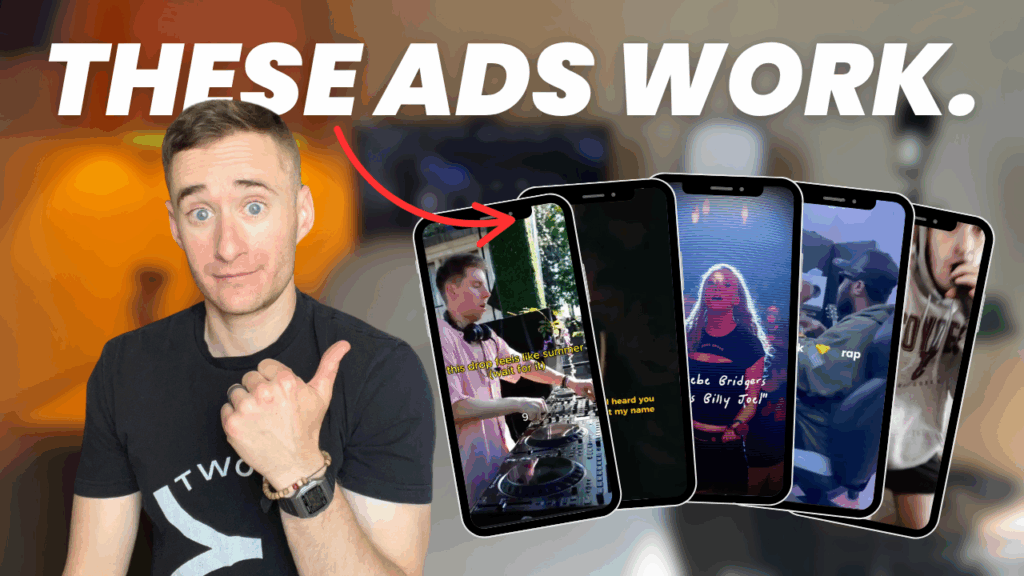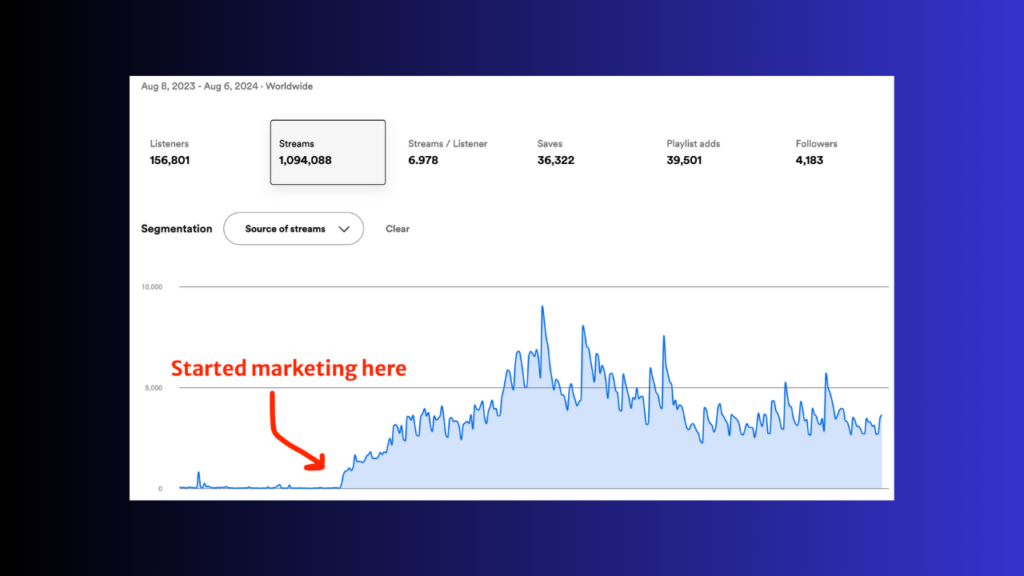The quality of music is not subjective.
Bet you didn’t see that one coming, huh?
(To be honest, I didn’t, either. I started writing a long, boring article about when to use music marketing agencies. Then this idea bubbled up and I deleted everything to chase it. #YOLO)
There’s a cultural assumption that music is totally subjective – that any piece of art, in fact, can’t be good or bad in an objective sense. Art, we think, can only be judged from the subjective viewpoint of the observer. Beauty is in the eye of the beholder.
Today, I’m going to try to convince you that that cultural assumption isn’t true.
There’s a very good chance I’ll fail in the attempt. But hopefully it’s fun for both of us.
What it means to be objective vs. subjective
First things first: To be objective means to use a system of analysis that’s outside of individual opinion. To be subjective, on the other hand, means to subject something to analysis that is primarily personal.
This distinction appears clear-cut when you give a few easy examples:
- A 100m race is an objective measure of speed.
- Calling someone your best friend is a subjective evaluation of a friendship.
- Somebody who has a height of six feet and two inches is objectively taller than someone who has a height of five feet and 10 inches.
- Subjectively (as somebody who is 5’10”), I think 6’2″ would be the perfect height.
But, as with most things, it gets more confusing the closer you look.
Now, you might think that if the binary between objective and subjective were to be blurred, it would largely be due to movement from the objective end toward the subjective end – in other words, that the confusion would come from things appearing to be more objective than they actually are.
Take the news, for example. Most news outlets profess objectivity when really they’re pretty biased.
This sort of blurring certainly happens. But I think more blurring happens from movement in the other direction – in other words, that a lot of confusion comes from things appearing to be more subjective than they really are.
We idolize our subjective opinions, but…
We literally cannot be totally subjective.
There is no system which you can hold in your mind that is uniquely your own. There is no measure of value that you can maintain without a comparison to something outside of yourself. Your frame of reference necessarily is bigger than you; if it weren’t, you couldn’t function.
Here’s what I mean:
To say “I like that song” is to compare it against other songs you’ve heard and rate it favorably.
To say “I don’t like that song” is to compare it against other songs you’ve heard and rate it negatively.
If you had not heard another song in your life – to make it even starker, if you had literally heard nothing else in your life – do you really think you would be able to form any sort of judgment about a song at all*?
And if your subjective opinion has been shaped by a system of analysis that’s outside of yourself – in other words, if you’ve heard other songs and sounds and are using them to inform your own judgment – then is your opinion really completely subjective?
I think the answer is no.
So there is a sneaky objectivity in every subjective opinion we hold.
And sure, maybe this is all semantics. But I think it gets real very quickly.
For example:
We tend to think taste – like, the taste of food – is subjective. But if that were to be totally true, then Michelin stars would mean nothing and the Great British Bakeoff would be completely meaningless. We may think that taste is subjective, but we know that Paul Hollywood can objectively measure the quality of bread.
We tend to think that the quality of music is subjective. But if that were to be totally true, then there would be no first-chair violin in an orchestra, and something like the Grammys would be completely meaningless.
(Okay, fine – maybe the Grammys are completely meaningless ha. But you get my point. We’re at least willing to buy the idea that music can be judged, regardless of whether the systems we’re using do it well.)
My point is that, even if external systems of judgment aren’t clearly visible or well-defined – i.e., even there isn’t a clear and obvious list of factors that make a loaf of bread good – those external systems do actually exist outside of mere personal opinion. Our desires and standards cannot be solely personal; they are, at the very least, socially shaped.
There is a set of standards outside of my personal opinion that make for a good loaf of bread, even if I can’t list them. Just ask Paul Hollywood. There is a format outside of my own mind that makes a good pop song. Just ask anyone who’s studied songwriting.
The upshot is that we unavoidably bring some element of objectivity to every judgment we make – including to our judgments of music.
Okay, this has all been very abstract and pseudo-philosophical.
I’ll close by trying to make it a tiny bit practical.
I’ve mainly written this whole spiel as a response to artists who say something like, “My music is good, but people just don’t get it.”
I relate to this (well, more to the part about people not getting it – not as much to the part about the music being good ha). But I think this complaint comes at things from the wrong end.
If you’re feeling this way, I think you should ask yourself what systems you’re using to measure the quality of your music. What, exactly, are you comparing your music against to call it good?
Then, recognize that the “people who just don’t get it” are probably using a different system of evaluation – and that, by their system of evaluation, your music might actually not be good.
From here, you have two choices: 1) Keep working according to your system of measurement, but share your music with people who share your system. Or, 2) change your system of evaluation and start making music according to the new system’s rules.
I’ll leave you with one final thought:
At the end of the day, art must answer two questions in the affirmative to be objectively good:
1) Does the art live up to its goals?
2) Are the goals themselves worthy?
You’ll notice that I’ve mainly dealt with the first question in this newsletter; I think it’s easier to answer, since it’s less dependent on worldview. I’d love to tackle the second – but would you look at that, we’re all out of time 😉









